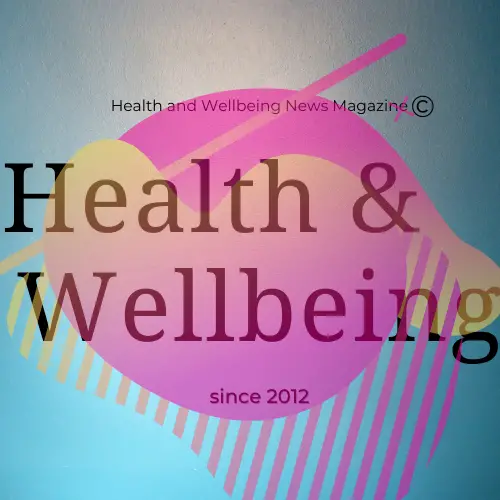The macula is a small area just two millimeters wide, located in the back of the eye, in the middle portion of the retina. The centre portion of the macula is referred to as the fovea, and it is responsible for our central, highly detailed vision.
For reasons scientists have yet to pinpoint, parts of the retina and the macula become diseased. the degeneration may take one of two forms, “dry” in which the conical cells dies off and there is a gradual decline in vision and “wet” which involves the development of swelling and scarring at the fovea. As AMD progresses, tiny, fragile blood vessels begin to develop in the retina. These vessels often leak blood and fluid that damages the retina even further.
ARMD is linked to ageing, atherosclerosis, high blood pressure and poor circulation but its progression is accelerated by excessive exposure to damaging free radicals such as smoking or too much sunlight. Other common sources of free radicals include: sitting too long at a computer screen, household chemicals, mobile phone, environmental pollution.
Macular degeneration is typically painless and includes symptoms of dark or blurry areas in the centre of vision, seeing distortions of straight lines, and difficulty doing activities that require sharp vision (e.g., driving and reading). Peripheral (side) vision may remain clear.
The carotenoids lutein and zeaxanthin are the predominant pigments in this area. Studies have shown a reduced risk of AMD in subjects with a higher intake of lutein and zeaxanthin or higher plasma concentrations of lutein and zeaxanthin. People who eat fruits and vegetables rich in these substances can decrease the risk of age-related macular degeneration some 43 percent.
Nutritional Supplements that could help. (Refer to the individual supplement for cautions in use.)
| Supplement/Herb | What it does | Dosage |
|---|---|---|
| Astaxanthin | Helps protect the macular from free radical damage and protects from UV light. | 1 – 5mg daily |
| Antioxidant formula | To neutralise excess free radicals and slow down progression of the condition. | as directed |
| Lutein | Lutein is abundant in the macula of the eye, the very central portion of the retina responsible for sharp focus. Lutein has been shown to filter the especially harmful blue and purple light from the sun that is thought to be responsible for damaging the photoreceptors of the macular. | 1 to 15mg daily |
| Selenium | Deficiencies are common, it help produce the antioxidant enzyme glutathione peroxidase. | 200mcg daily |
| Vitamin C with bioflavanoids | Potent antioxidants that protect the water membranes of the eye. | 1000mg daily |
| Vitamin E | Potent antioxidant that protects fatty membranes, supports circulation and helps blood oxygenation. | 1000iu daily |
| Zinc | Plays an important role in retina function and can slow down vision loss in those with ARMD. | 15 to 30 mg daily |
| Bilberry Berries | Bilberry extract improves circulation to the eyes, and enhances oxygen and energy levels in eye tissue. Additionally, helps stabilise collagen (a major factor in maintaining eye integrity) and acts as a potent antioxidant. | 60 to 180mg daily |
| Ginkgo biloba | Ginkgo biloba extract has been shown to increase circulation to the retina and improve visual processes. The potent antioxidant compounds in ginkgo help to protect against free radicals generated by ultra-violet light and are supportive of retinal integrity. | 60 to 180mg daily |
| Grape Seed extract | If there is poor night vision or photophobia (significant sensitivity to bright light. | 150mg twice daily |
Diet and lifestyle factors
- Cut down on refined, processed foods such as sugar, alcohol, fried foods, white bread as these create free radicals.
- A diet high in trans fat appears to contribute to macular degeneration. Trans fat may interfere with omega-3 fats in your body. Trans fat is found in many processed foods and baked goods, including margarine, shortening, fried foods like french fries, fried chicken and doughnuts, biscuits, pastries, cakes and crackers.
- Stop Smoking (smoking more than doubles risk of developing AMD)
- Limit exposure to UV light (wear sunglasses in bright sunlight).
- Limit exposure to environmental toxins and other sources of free radicals.
- Don’t add salt to food.
Include:
- Eat plenty of spinach and other green, leafy vegetables. Every time you eat a spinach salad or a serving of kale or turnip greens, your body is getting high levels of lutein.
- It is important to note that lutein is an oil-soluble nutrient, and if you merely consume the above vegetables without some oil or butter you can’t absorb the lutein. So if you are consuming vegetable juice, it would be wise to use some olive or cod liver oil in the juice to maximize your lutein absorption, as well as the absorption of other important nutrients like vitamin K.
- Most people don’t know that lutein is also present in egg yolks. There is about 0.25 mg in each egg yolk-in a highly absorbable nearly ideal form, especially if you don’t cook it. Egg yolks also have zeaxanthin in an equal amount. Zeaxanthin is another carotenoid that is likely to be equally as effective as lutein in preventing macular degeneration.
- If you consume four raw egg yolks per day mixed in with your vegetable pulp, you will be getting 1 mg a day of lutein and zeaxanthin. Your absorption of each will be close to 100 percent, which may be the equivalent of consuming half a cup of unjuiced kale or collards.
- Eat oily fish 3 times a week as the DHA they contain helps prevent macular degeneration.
- The European blueberry, bilberry, is known to prevent and even reverse macular degeneration, and bioflavonoids from other dark-coloured berries including blueberries, cranberries and others will also be beneficial. They work by strengthening the capillaries that carry nutrients to eye muscles and nerves.
- Aim to drink around 2 litres of water per day and dehydration can result in poor eye function.
- Vitamin E intake can be boosted by adding wheatgerm in cereals, soups and yoghurts and eating avocados.
- Pumpkin , sunflower, linseeds and sesame seeds are rich in essential fats, zinc and selenium needed for healthy eyes.
- Wear UVA/UVB protective sunglasses whenever the sun is bright, especially when walking or driving to protect your eyes from the rays of the sun.
- Stop smoking, this will halve your risk of ARMD.
- Reduce exposure to computer screens, mobile phones and environmental pollution.
- Women who take the contraceptive pill or use the copper coil may have too much copper in their system which can lead to zinc deficiency. Have your copper levels checked if you have been using these forms of contraception for a long time.





